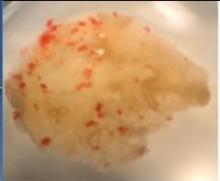- About us
- Research
- Students & Teaching
- Seminars & Events
- Directories
- Booking Rooms & Equipment
- עברית
Home » Micro-pancreas engineered by Prof. Mitrani will help treat diabetic patients
In light of advances in cellular therapy, many research groups in academia and the biotechnology industry attempt to use cells as new generation drugs to treat diabetes and other diseases. However, it is well known that when healthy cells are removed from their natural environment and grown in cell cultures in the laboratory, they function far less efficiently than in the body. Based on this observation, Prof. Mitrani concluded that in order to implant insulin-producing beta cells that will function properly, the complete structure of the endocrine pancreas should be reconstructed. Therefore, an effort was made to develop transgenic micro-pancreas to help treat diabetic patients.
The micro-pancreas prepared in the laboratory is composed of cellular organ-derived micro-scaffolds seeded with human islets. The complete product can be implanted anywhere in the body. The micro-pancreas provides significant levels of insulin and allows for control of sugar for long periods of time. Once it is implanted in the body, it also enhances the formation of blood vessels that connect it to the body's blood system. This is an attempt to produce a complex organ in the laboratory that contains all the components of the natural organ.
Tallinn Therapeutics plans to begin human clinical trials within 18 months. The promising preclinical data indicate the potential to dramatically improve existing treatments for people with type 1 diabetes and those with type 2 diabetes dependent on insulin injections.
